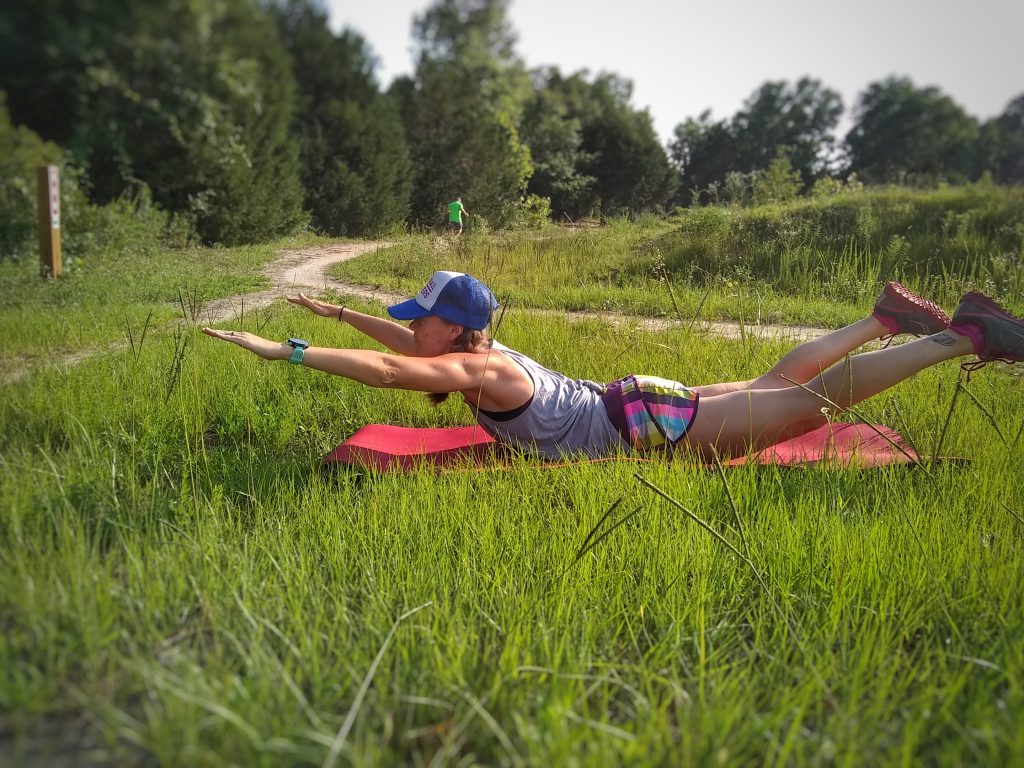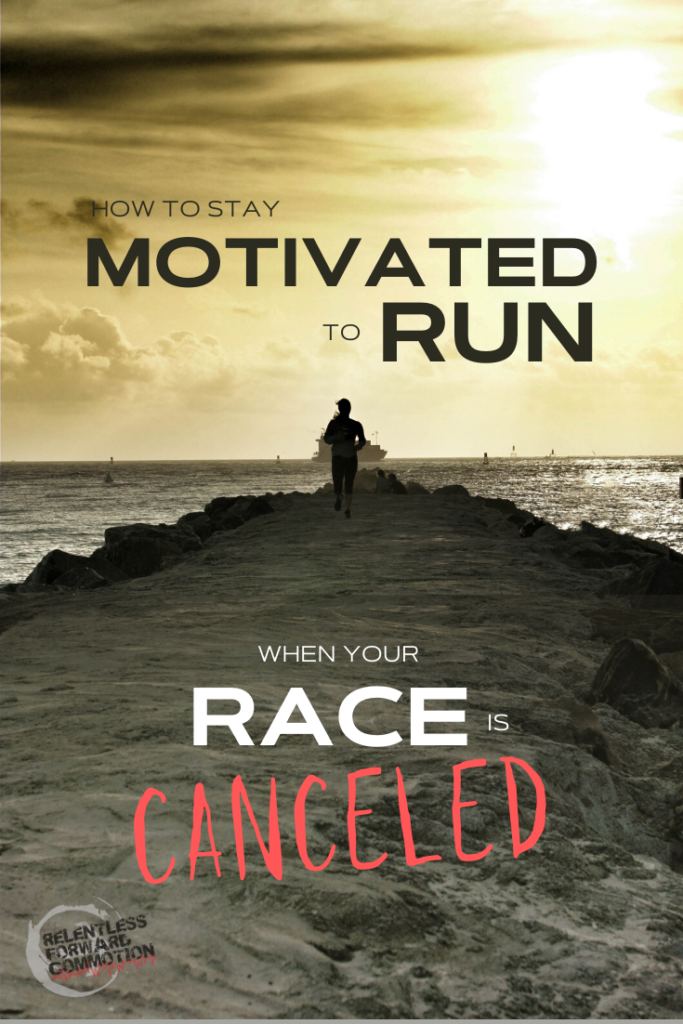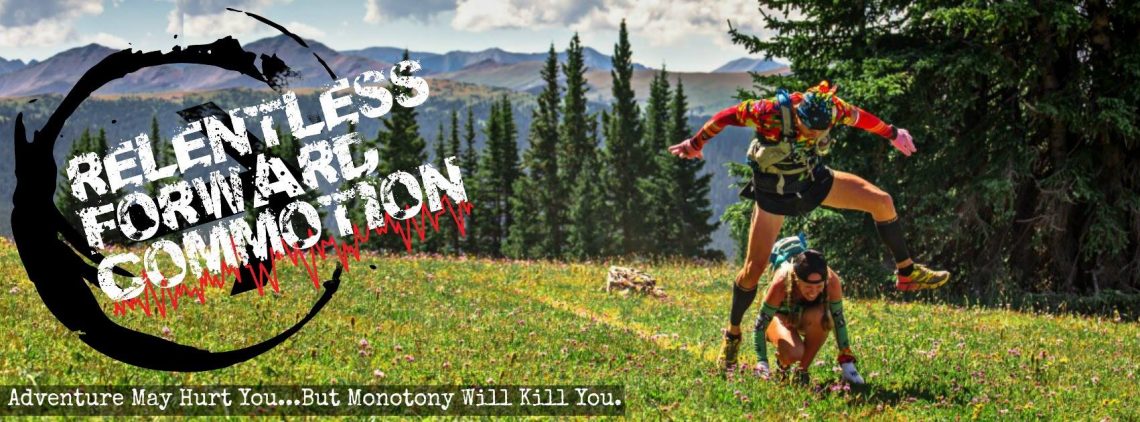Last Updated on March 20, 2020 by Heather Hart, ACSM EP, CSCS
As a long time runner, I have experienced the disappointment of canceled races before. Living in hurricane territory typically means that scheduling a race in the fall is risky. Let us not forget my great Barkley Fall Classic disappointment of 2018 when Hurricane Florence forced us to evacuate, and I had to pull out of a bucket-list race the week of the event. It was devastating for me at the time. I get what it feels like to put so much literal blood, sweat, tears, not to mention emotional investment into an event, only to have it be taken away from you. So when a client comes to me upset because a race has been canceled, I typically feel confident in how to console them.
This, however, is an unprecedented time.
As coaches, our entire email inbox began flooding with emails last weekend from clients letting us know that their goal races have been canceled. But here’s the real kicker: as of now there’s no end in sight. And our clients want to know:
How the heck am I supposed to stay motivated to run and train when I don’t know when I’ll be able to race again?

It’s a valid question and one that in a weird way, I’m experiencing from a different point of view. Because of “life” in general, I didn’t even register for any running races at all this year . When you are used to using races as a motivational tool, finding yourself without any on the calendar, by choice or by circumstance, can certainly leave you feeling lost and lacking enthusiasm to get out the door.
How to Stay Motivated to Run When Your Races are Canceled
So, if you’ve found yourself here because your race has been canceled (or multiple races) and you can’t seem to motivate yourself to log miles or workouts, I hope the following tips can help.
Think of it as bonus training time.
Yeah, I’m coming at you with a “glass is half full” optimistic view. But hear me out:
A handful of our clients were just starting their taper for the Georgia Death Race, a gnarly and brutal 78 mile race through the mountains of Georgia, when they got word that the race was canceled. This race is by lottery entry only, and these athletes have been training since last summer. While my heart hurts for all of my clients – the cancellation of this race seemed to be the hardest blow to my coaching heart.
But here’s the thing:
These athletes have busted their asses over the last 6+ months training for a very difficult race. In doing so, they have become wildly stronger and more efficient runners. If you’ve trained properly for your canceled race, then chances are you too have become a better runner. MORE time to train (after adjustments to your training schedule, adding in some periods of rest and recovery) will only make you a better, stronger runner.
Long distance running truly is a long term sport, and with proper training, the experience you gain over years – rather than just months – is incredible. Instead of focusing on “wasted” time, think of the long term investment you are making into your goal. Point being: KEEP GOING.
Tired? Use this time for recovery.
If you were struggling to get through the peak portion of your training cycle, finding yourself either physically or emotionally exhausted (or both), now is a great time to use for recovery. Cut your mileage way back. Take the pressure of a strict training schedule off of your shoulders for a while.

Use this time to run whatever you feel like, whenever you feel like. Leave the GPS watch at home and instead listen to your body. Remember why you love to run. We are all under a lot of stress right now, and adding your running to the “things that stress me out” list will only make that stress level surge.
And if you’re really burnt out? Take time off. I promise you that taking a few weeks off from running, if you truly need a “time out”, can actually be beneficial.
Watch some motivational documentaries.
Watching inspirational trail and ultra (or running in general) films and documentaries gets me out the door and excited to train every single time. Here are two posts full of suggestions and some of my favorites (click on the photos below to take you to the collections).
Focus on a weakness.
Most runners have a weakness. Perhaps it’s structural / muscular, such as weak hips or weak glutes. Maybe it’s a breakdown in running form. Or perhaps it’s something like strength training, or cross training days, etc. when you have previously avoid them at all costs. Whatever it is, as runners we often ignore things that we really should do, because we prioritize logging training miles for an upcoming race.

Use this down time as the perfect opportunity to focus on a weakness without fear of not meeting mileage goals or training plan workouts. It will motivate you by providing a new goal.
Try something new or different.
Or, go back to something active that you haven’t had time to do because of training.
Are you a road runner who has always wanted to give trail running a try, but worried you might hinder your road training?
Really wanted to get reacquainted with your mountain bike, but never found the time in your busy ultra training schedule?

Always wondered if you could perfect a handstand or yoga inversion?
Wish you had more time to play basketball in the front yard with your kid?
With races postponed indefinitely , now is the perfect time to try new things, or focus on a fitness activity you haven’t had time for. Assuming, of course, you can do these things within the social distancing guidelines. It may not be running, but the cross training will help you become a stronger, more well rounded athlete, which does carry over to running.
Know this will end (eventually).
I promise you this: races will happen again. They will. I obviously don’t know when – it could be later this spring, or later this year, but this too shall end. The saying “it can’t rain forever” is repeating in my head over and over. When that time does come – and here’s hoping it’s sooner rather than later – you’ll be happy that you kept up with a regular running routine so you still have a base fitness level to get you back on track to those starting lines.
One thing I remind my clients over and over is that running is a lifetime sport. And over the course of “life” you’re naturally going to have peaks and valleys. This is no different.
I wish I had more concrete advice for you guys right now. The uncertainty is real, and I’m right there with you. Know this: something is better than nothing, always. When in doubt, just get out there and run. If you still aren’t feeling motivated after the first mile, give yourself permission to quit. But I can almost guarantee that after that mile, the happy endorphins will kick in, and you’ll be glad you got out the door.

Heather Hart is an ACSM certified Exercise Physiologist, NSCA Certified Strength and Conditioning Specialist (CSCS), UESCA certified Ultrarunning Coach, RRCA certified Running Coach, co-founder of Hart Strength and Endurance Coaching, and creator of this site, Relentless Forward Commotion. She is a mom of two teen boys, and has been running and racing distances of 5K to 100+ miles for over a decade. Heather has been writing and encouraging others to find a love for fitness and movement since 2009.



Leave a Reply